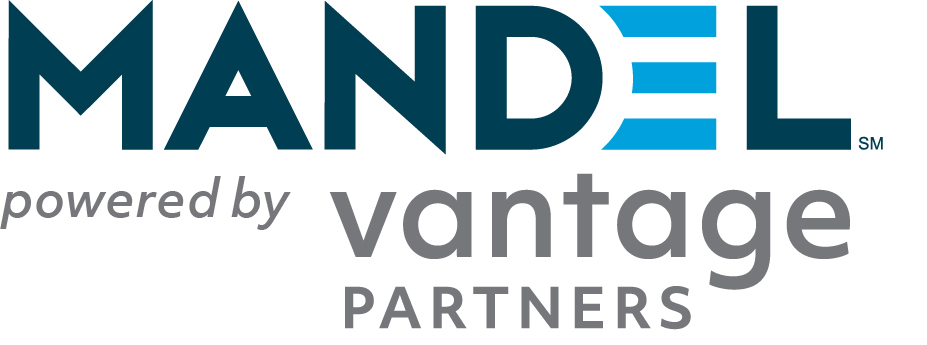High-Stakes Briefings & Meetings Cost Billions
Customer briefings and meetings drive your company’s top line revenue and productivity. Because the stakes are so high, how can you ensure success?
Plan your agenda and the meeting should run itself, right? Not quite.
Many people make the mistake of thinking that, as long as participants have agreed to the agenda, the meeting will flow naturally. In the end, you’ll achieve your goal — whether that’s to close a large deal or enlist support for your idea or project.
The truth is, it’s not that simple.
Poorly managed briefings & meetings result in bad experiences for customers or stakeholders. That not only risks your reputation, but also costs your business significant revenue and productivity.
In fact, ineffective meetings cost the US economy as much as $70.9 billion annually, according to research by Lucid Meetings. And that’s assuming a mere 5% are ineffective.
Alternatively, well-run executive briefings and business meetings can:
- Strengthen business relationships
- Overcome customer & stakeholder resistance
- Improve your credibility and reputation
- Influence faster decisions
- Increase productivity
- Shorten sales cycles
- Increase deal size
These outcomes are supported by Association of Briefing Program Managers (ABPM) research, which found that 72 percent of customers increased the amount of their purchase by an average of 36 percent as a result of a briefing.
Secret to Successful Briefings & Meetings?
Want to know the real secret to running successful executive briefings or meetings? The right mix of presentation and facilitation skills.
“What’s the difference?” you might ask. Presenting is the act of expressing something, whereas facilitating means to move something forward.
Now think about your own people — your executives, salespeople, sales engineers, subject matter experts, and discussion leaders.
Do they have the skills to ensure a meeting runs smoothly? Can they assess what customers or stakeholders care about and then confidently present in ways that address those concerns? Can they move the discussion toward a decision or next step?
Presentation Skills vs. Facilitation Skills
One of the most common questions I hear from Briefing Center professionals is, “How do I know which skills people in my organization need?”
Outside of the Executive Briefing Center world, people rarely think of facilitation as a distinct communication skill. Many assume that if you can present well, you’ll also be a skillful facilitator.
To figure out who needs what, you need to know how the two skillsets differ from one another.
Who needs presentation skills?
Arguably, everyone.
At some point in your career, regardless of role, you’re going to have to present to others — whether informally during a meeting or phone call, or more formally in front of an audience.
At Mandel, we believe there are 5 skills that are critical to crafting and delivering successful presentations:
- Analyze Your Audience: Great presenters know how to ask the right questions and do the work needed to understand what their audience cares about most.
- Craft Relevant Messages: You want to be able to build content that’s easy to understand, uniquely valuable to your audience, and trustworthy.
- Present with Confidence: You should be able to deliver your content or message with authenticity, composure, and executive presence.
- Navigate Visuals for Impact: The visuals you choose to use in your presentation should be purposeful and help you illustrate key points.
- Handle Tough Questions: You want to be able to handle tough questions in ways that build trust with your audience and move people toward the desired action.
If you manage your company’s Executive Briefing Center, everyone with a seat at the Briefing Center table should be presentation-ready, including:
- Executive Briefing Center Teams
- Discussion Leaders
- Subject Matter Experts
- Sales Teams and Presales Teams
- Facilitators
- Executives
But what about facilitation skills — does everyone need those too?
How do facilitators differ from presenters?If presenters are the pilots who skillfully land the plane, facilitators are the air traffic controllers who ensure that they do so safely and on time.
Facilitators are designated as the ones responsible for orchestrating the in-the-moment experience for customers and stakeholders. Having a designated facilitator can eliminate confusion, prevent awkward transitions, help maintain focus, and generally ensure that briefings and meetings run more smoothly.
Also, a good facilitator can encourage interactions that uncover additional sales opportunities. For example, 76 percent of customers surveyed by ABPM said they discovered additional solutions during a briefing that appeared to be useful to their company.
In essence, a good facilitator sets the tone for what it’s like to do business with your company. During a briefing or meeting, customers and stakeholders are evaluating you, whether consciously or unconsciously:
- Do you listen?
- Are you flexible?
- Are you making the meeting about them or you?
No one wants to feel used, sold to, or “force fed” what they need. They want to feel like you are a partner who understands and respects them and is ready to help.
Facilitators Need a Specific Skillset
While it stands to reason that facilitators should have great presentation skills, they also need to be skilled in areas that presenters don’t.
Facilitators need to be able to do three things well, according to Ann Benett of Benett Communications, a global consultant and ABPM Supplier Member.
-
Bring focus to the briefing or meeting.
- Open strategically
- Confirm objectives & track their progress
- Transition by linking back to objectives
- Powerfully intro speakers by providing context
- Close purposefully
-
Observe and analyze what’s happening during the meeting.
- Listen and observe
- Read body language
- Consider interactions
- Check in constantly
- Pose intentional questions
-
Adjust along the way to improve the experience and outcome.
- In response to observations, know how and when to intervene in challenging situations, to ensure a great customer or stakeholder experience.
The role of the facilitator is critical to delivering an exceptional experience that sets you, your idea, and your organization apart from the rest.
Differentiated Customer & Stakeholder Experiences
The stakes are high when it comes to executive briefings and important sales or project meetings. There’s a lot riding on their success for you and for your organization — including revenue, reputation, sponsorship, productivity, etc.
In most cases, there are no second chances.
You have to get it right the first time. And getting it right means creating an incomparable experience for your customers or stakeholders. Their experience of the event is what counts and what will ultimately differentiate you from competing organizations, projects, and ideas.
How do you deliver a differentiated experience? Make sure the right people with the right skills are doing the right things at the right time.
First, identify who’s presenting and who’s facilitating. Ensure each person gets the training they need to purposefully manage high-stakes briefings and meetings in ways that are credible, relevant, and valuable to customers and stakeholders.
Deliver an experience where customers or stakeholders feel heard and understood. Not only should they feel that you “get it” and have their best interests at heart — they also need to trust that you have what it takes to help or that you’re the right person or organization for the task.
It’s true that executive briefings and meetings don’t run themselves. But when managed well, not only do they feel like they do, they also deliver exceptional results for your business.
Get Your Self-Assessment Tool & Checklist







